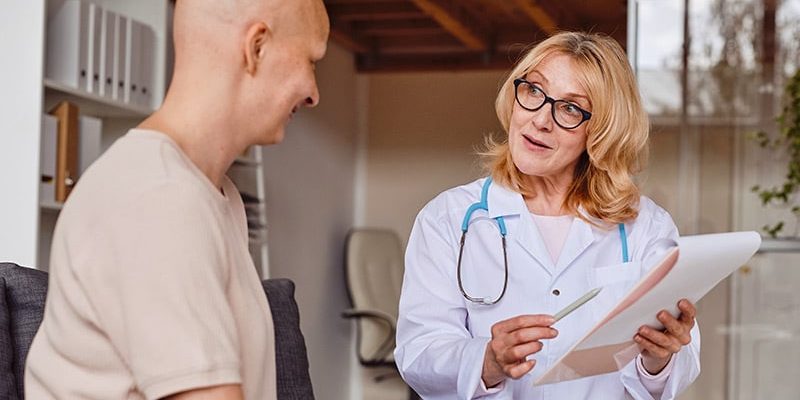Now that the COVID-era Public Health Emergency (PHE) has come to an end, thousands of older patients with cancer may face problems accessing their medications.
A little-known rule, which went into effect May 11 when the PHE lifted, prohibits independent practices from shipping oral and injectable oncolytic therapeutics to patients by mail or delivery service or from having relatives pick them up.
Under a PHE waiver, practices were protected from this regulation. That protection has now ended.
The rule was recently added to a Centers for Medicare & Medicaid Services (CMS) regulation, known as the Physician Self-Referral Law, or Stark law. Broadly speaking, the Stark law prohibits physicians from referring patients for designated healthcare services that are covered under Medicare or Medicaid. Also prohibited is the distribution of outpatient drugs if the physician or an immediate family member has financial ties involving those services. For instance, an outpatient oncology center would violate the Stark law if it paid hospitals to refer patients to them.
Since CMS established the law in 1989, the regulations have expanded and evolved. A recent update, published in a CMS FAQ in September 2021, clarified language regarding how and where patients can receive designated healthcare services.
CMS specified that a practice would violate the Stark law “if a patient receives an item by mail outside the physician’s office, as it would not be dispensed to the patient in the office.”
Practices have their own pharmacies that typically mail these drugs to patients, but now, patients will have to come to the provider’s office to get their medications. Patients who cannot come to the office will have to have their drugs mailed to them from a specialty pharmacy. Both scenarios will likely add a significant burden to patients’ ability to access their cancer care.
“CMS’ total disregard for the realities of modern-day cancer care dependent on oral cancer therapies integrated with patients’ medical care endangers the lives of the oldest and sickest Americans,” Ted Okon, executive director of the Community Oncology Alliance (COA), wrote in a statement issued today. “This especially impacts seniors who are too sick or do not have easy access to transportation, particularly in rural areas.”
Okon told Medscape that the language change, which was made to the last paragraph of the 2021 CMS FAQ during the height of the pandemic, largely went under the radar.
Last month, COA wrote a letter to Health and Human Services (HHS) Secretary Xavier Becerra outlining the ways in which this regulation will harm patients and asking CMS to retract the language.
In the letter, COA explained that “practices are panicking…and trying not to alarm their patients who are dependent on getting delivery of their drugs from their providers. Time is of the essence!”
The CMS FAQ was discussed in late March at a hearing of the House Energy and Commerce Subcommittee on Health. During the hearing, Representative Diana Harshbarger (R-TN-01) brought up the “immediate threat” of CMS’s “prohibition on community cancer clinics from mailing their patients medications directly.”
“This is extremely disruptive to cancer care,” Harshbarger said. She asked HHS Secretary Becerra whether he was committed to resolving this issue.
Becerra confirmed, “Absolutely.”
Last night, however, CMS informed COA that “it would not rescind” its 2021 FAQ, according to a statement COA issued today.
Facing a New Patient Access Issue
With this rule in effect, the main issue for patients will be access.
“Many of our patients have problems even getting to doctor’s appointments,” said Darrell L. Willyard, director of Pharmacy at Oklahoma Cancer Specialists at Oklahoma Cancer Specialists and Research Institute, Tulsa. “They rely on assistance from their kids, their church, neighbors, and so on.”
Now, patients too sick to pick up their medications in person will likely have to purchase these drugs through a specialty pharmacy. Willyard explained that there is a lot of paperwork involved, which can be overwhelming for some patients with cancer and all that goes with it.
In Hawaii, the access issues could be even more severe. Some patients may have to fly to pick up their medications.
Hawaii Cancer Care treats about 500 patients each month at two locations, both in the Honolulu metro area. However, “we have patients on the other islands who come to us for care,” said Isobel Webster, director of operations at Hawaii Cancer Care. “The only way to go from island to island is by plane.”
For patients who are older or are disabled, “this is going to be a huge burden,” Webster said.
For more from Medscape Oncology, join us on Twitter and Facebook .
Source: Read Full Article
